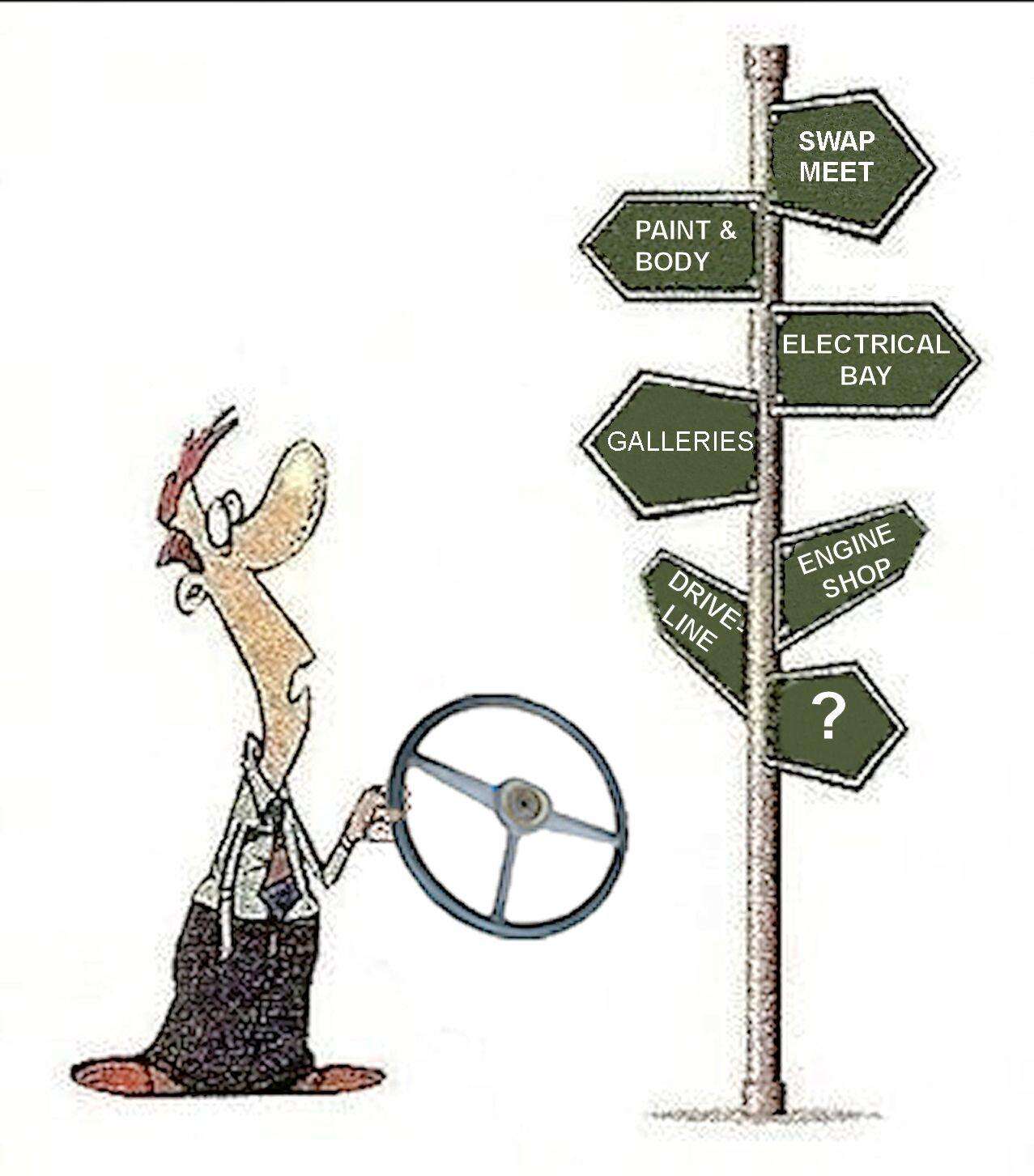BUSY BOLTERS Are you one?  The Shop Area The Shop Area
continues to pull in the most views on the Stovebolt. In August alone there were over 22,000 views in those 13 forums.
| | Click on image for the lowdown. 
====
| | | Forums66 Topics126,778 Posts1,039,288 Members48,100 | | Most Online2,175
Jul 21st, 2025 | | | | Joined: Aug 2009 Posts: 9 New Guy | | New Guy Joined: Aug 2009 Posts: 9 | Hi - I have a 1954 GMC 100 with a 1960 Chevy 235 truck engine (based on casting numbers) and a 6 volt electrical system -- assuming pieces from the original 248. This was all pieced together in the 1970s sometime. Here's my electrical question - do I set the dwell angle between 28-35 as recommended for the 1960 235 (assuming a 12 volt ignition) - or, do I need a longer dwell angle, to account for a lower voltage, to get a sufficient spark? | | | | | Joined: Jun 2004 Posts: 8,597 Riding in the Passing Lane | | Riding in the Passing Lane Joined: Jun 2004 Posts: 8,597 | Use the recommendation for the dist you are using. I assume you are using the 6 volt coil. I'm not sure but there may be a difference in the 6 & 12 volt cond.
They say money can't buy happiness. It can buy old Chevy trucks though. Same thing. 1972 Chevy c10 Cheyenne SuperIn the Gallery Forum | | | | | Joined: Aug 2009 Posts: 9 New Guy | | New Guy Joined: Aug 2009 Posts: 9 | Yes, 6 volt coil. Recommended condenser (via online retailers) is same 1954 (6 volt) versus 1960 (12 volt). Now I just need to find out where that distributor came from! I just assumed the 1954 GMC 248, but who knows. Could be from the 1960 engine or some other item purchased at a swap meet (truck pieced together in the 1970s by someone). | | | | | Joined: Jul 2007 Posts: 461 Shop Shark | | Shop Shark Joined: Jul 2007 Posts: 461 | The condensor is the same for either system voltage; the size is determined largely by the primary windings in the coil. A usable dwell range is determined mostly by the number of lobes on the distributor cam and is independent of system voltage, so the 28-32 degrees is fine. Remember to set the ignition timing after setting the points- the point adjustment/dwell affects ignition timing.
Harvester | | | | | Joined: Aug 2009 Posts: 9 New Guy | | New Guy Joined: Aug 2009 Posts: 9 | Thanks to all for help - I can't find the model number on the distributor - it has worn off - but will assume that it came from the 1960 engine. Will aim for initial dwell angle of 28-32. And Harvester, thanks for the tip on the timing - it's also on the list. | | | | | Joined: Jul 2007 Posts: 461 Shop Shark | | Shop Shark Joined: Jul 2007 Posts: 461 | I would stay at the low end of the dwell angle, but that is my preference. Your points will last marginally longer, all other things being equal, and you don't need the extra dwell.
Harvester | | | | | Joined: Aug 2009 Posts: 9 New Guy | | New Guy Joined: Aug 2009 Posts: 9 | Well, thanks to all - this site was a big help! The ignition system was really in tough shape - bad wires (resistance inconsistent among plug wires, wrong condenser, worn rotor button, corroded distributor cap). I replaced all these items including the spark plugs. Set dwell at 28 degrees. Would not start at first - so I carefully found the little ball on the flywheel (seemed to be in sync with what the valves were doing), painted that thing with white out, static timed it using my multimeter to have the points just open, double checked the wires, then it fired up right away! I then used my timing light to make finer adjustments, but it was really close to the ball. Now will advance and retard as needed when driving. Onto other (and numerous) tasks... this truck looks OK from afar, but has had some neglect. | | |
|
|